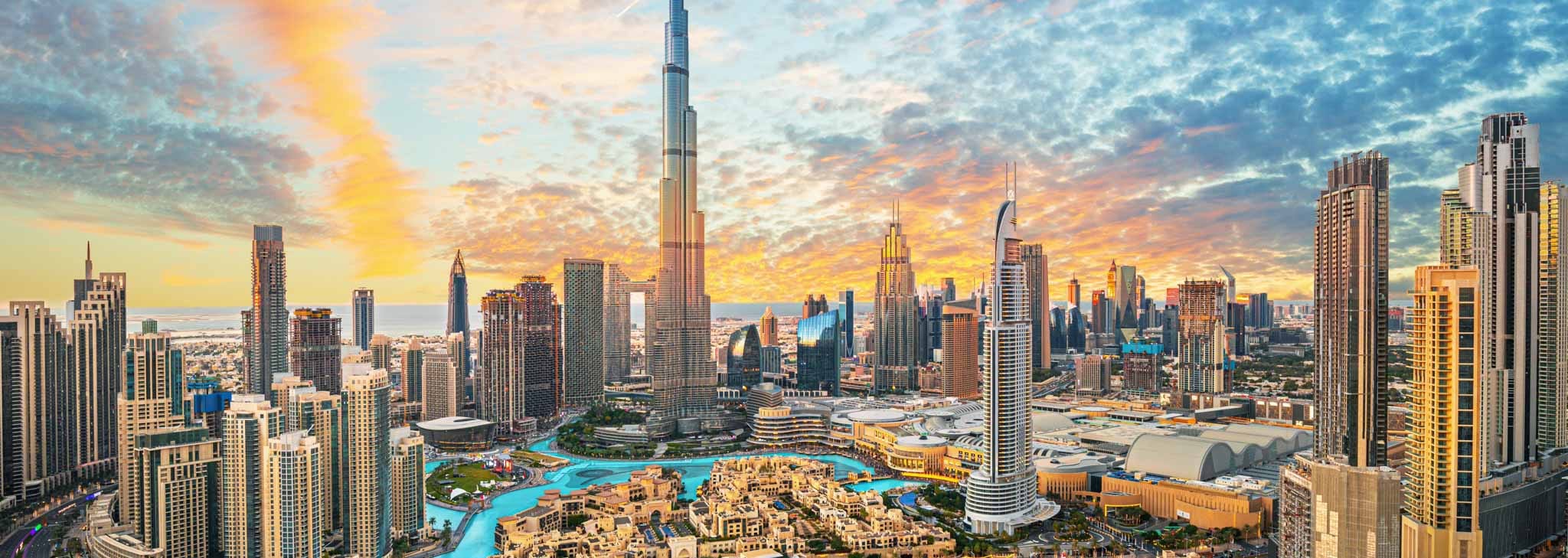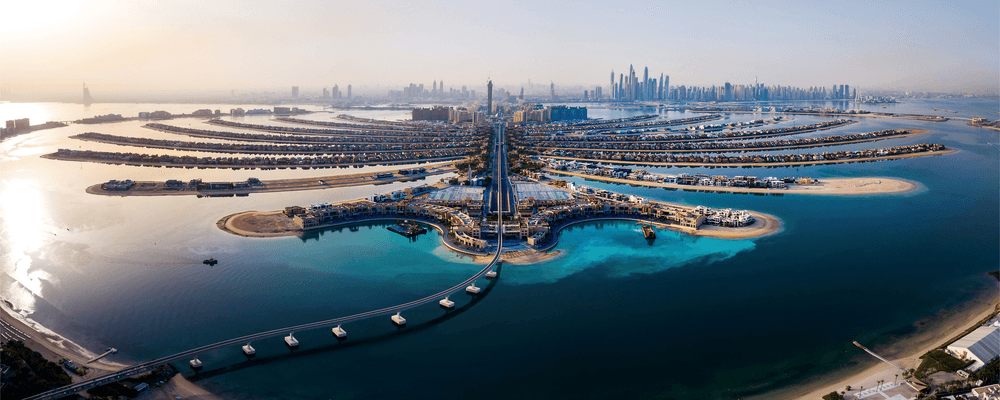So, you’re thinking about moving to Dubai? Whether you’ve landed a new job, starting a business, or just seeking a change, moving to a new city can feel overwhelming.
Don’t worry — we’ve got your back! This guide will walk you through everything you need to know to make your move to Dubai smooth and exciting.
What to Expect When Moving to Dubai
Is Dubai a Good Place to Move to?
Dubai is widely known for its vibrant lifestyle, diverse international community, and excellent professional opportunities, making it an attractive destination for expats.
While the city offers a variety of advantages that appeal to many, the question of whether Dubai is the right place for you depends largely on your personal preferences and what you’re seeking in terms of lifestyle and living environment.
Is Moving to Dubai Worth it?
Absolutely! Moving to Dubai comes with numerous financial benefits, such as the absence of income tax and the potential for higher salaries, which can be very appealing.
However, it’s also important to weigh these benefits against the relatively high cost of living and the need to adapt to a different cultural environment.
Understanding Dubai’s Culture
Whether you’re moving to Dubai or any new city, it’s always a good idea to be familiar with the local culture and social norms to avoid any surprises or uncomfortable situations.
Whether you’re moving to Dubai solo or with your family, here are some key aspects of Dubai’s culture to be aware of:
- Dubai ranks among the safest cities in the world, with impressively low crime rates.
- The weather is hot and humid for most of the year, except for the winter months (December to March), when you’ll enjoy cooler temperatures and pleasant breezes.
- Be mindful of making any racially charged or defamatory remarks—these actions can result in severe penalties, including imprisonment or a ban from entering the country.
- Drinking alcohol in public places is prohibited; alcohol consumption is allowed only in licensed venues.
- For men, it’s respectful not to initiate a handshake with women unless they offer first.
- Most private companies in Dubai do not provide pensions.
- For expats from Western countries like the UK, it’s important to be mindful that, while Dubai is a modern city, it still upholds many Arab traditions, and these may differ from Western cultural norms.
How Can I Move to Dubai?
What Should I Know Before Moving to Dubai?
Before you begin your journey to Dubai, there are several important factors to keep in mind. Below is a concise checklist of essentials to consider when moving to Dubai:
- The type of residency visa you’ll need.
- Required documents to complete residency and employment procedures.
- The overall cost of living in Dubai.
- Finding the right community that fits your lifestyle and budget.
- Familiarise yourself with local laws, especially those relating to rentals, work, and driving.
For more information that is provided by the government about moving to Dubai click here.
Moving to Dubai Checklist
Moving to Dubai—or any new city—is an important decision, but with the right preparation, it can be a smooth transition. Here’s a helpful checklist to guide you through the process of moving to Dubai:
- Passport Validity: Make sure your passport is valid for at least six months beyond your intended stay in Dubai.
- Work Permits and Visas: Apply for your work permits and visas well in advance, as the process can take several weeks or months.
- Vaccinations and Health Checks: Complete any required health checkups and vaccinations before arriving.
- Budgeting: Plan for your moving costs, including shipping, flights, and initial accommodation. Also, account for the expense of setting up a new home.
- Savings: It’s wise to have savings set aside for initial costs such as rental deposits and car lease charges, which may not be immediately reimbursed by your employer.
- Tax Planning: Make sure you’re aware of any tax obligations in your home country and notify your tax authority about your move.
- Schools: If you have children, start researching schools early. Some international schools in Dubai have long waiting lists.
- Banking: Open a bank account either in your home country or upon arrival in Dubai.
- Accommodation: Decide whether you’ll rent or buy a home, and spend time exploring neighborhoods to understand the rental market and pricing.
- Healthcare: Ensure you have health insurance that is valid in the UAE, as it is mandatory.
- Driving License: Check if your current driving license is accepted in Dubai or if you’ll need to apply for a local one.
- Cultural Research: Take time to learn about the local culture, customs, and laws to ease your transition into life in Dubai.
By following this guide, you’ll be well-prepared for successfully moving to Dubai and equipped to navigate the many exciting aspects of your new life in this dynamic city.

How Much Does It Cost You to Live in Dubai?
Dubai can be as affordable or as expensive as you make it. Here’s what you can expect:
- Rent: This will be your biggest expense. In trendy places like Dubai Marina or Downtown Dubai, expect to pay:
• AED 60,000 – AED 120,000 yearly for a one-bedroom apartment.
• AED 100,000 – AED 200,000 for a two-bedroom in these prime locations.
You can find more affordable rents in Al Nahda, International City or Jumeirah Village Circle. - Utilities: Plan for AED 500 – AED 1,500 per month for electricity, water, and cooling.
- Groceries: If you’re shopping locally, you could spend anywhere from AED 800 to AED 2,000 a month. There’s always a way to balance local and imported groceries to suit your budget.
- Transportation: Dubai Metro is affordable, starting at AED 2, and taxis are a convenient option with a base fare of AED 5.
On average, you’ll need around AED 10,000 – AED 15,000 per month to cover the essentials. Of course, it all depends on your lifestyle!
What Visa Do I Need to Live in Dubai?
Obtaining a visa is essential to live in Dubai. Without this, you won’t be able to move forward with your plans. There are several visa options depending on why you’re coming. Here are some of your options:
- Employment Visa: If you’re moving for work, your employer will sponsor this. You’ll need a job offer in hand, complete a medical exam, and submit background checks. Easy, right?
- Investor Visa: If you’re investing in a business here, this one’s for you. You’ll get to enjoy Dubai’s business-friendly environment.
- Family Visa: Are you bringing your family along? If you earn more than AED 4,000 a month, you can sponsor your spouse and children. Just make sure you have your marriage certificate and other necessary docs ready.
Where Should I Live in Dubai?
Dubai is full of neighbourhoods with their own unique vibe. Whether you’re a beach lover, prefer urban living, or want a more family-friendly spot, there’s something for everyone. Here are some of the most popular spots for expats:
- Dubai Marina: Perfect if you’re into waterfront views, luxury apartments, and being close to the action.
- Jumeirah Beach Residence (JBR): If you love the beach and family-friendly amenities, this place will feel like home.
- Downtown Dubai: Want to live next to the iconic Burj Khalifa? Downtown is the place for professionals who want to be in the heart of it all.
- Mirdif: Ideal for those looking for a quieter, suburban lifestyle with good access to schools.
- Jumeirah Lake Towers (JLT) and Jumeirah Village Circle (JVC): If you’re looking for a more budget-friendly option without compromising on modern living.
What are the Transportation Options in Dubai?
Dubai’s transportation system is easy and efficient. Let’s break it down:
- Dubai Metro: This is probably the quickest way to get around. The Red and Green lines will take you through most of the city, with fares starting at AED 2.
- Buses: Dubai’s bus system is also reliable, with fares ranging from AED 2 to AED 10 depending on the distance.
- Taxis and Ride-Hailing Apps: Need a quick ride? You’ll find taxis everywhere, and if you prefer using apps, Uber and Careem are your best friends.
- Car Rentals: A lot of expats opt to rent or lease cars, especially if they want more freedom to explore the city. Rentals start at AED 100 per day.

Education in Dubai
When moving to Dubai, education is a crucial factor for families. The city offers a wide range of schools, from British and American curricula to International Baccalaureate (IB) and national programs like Indian, French, and German systems. Dubai is home to some highly rated schools such as Dubai College, GEMS Wellington, and American School of Dubai.
School Fees vary widely, with annual costs ranging from AED 12,000 to over AED 100,000. Admission is competitive, and it’s best to apply early as many schools have long waiting lists. The KHDA regulates and rates schools, providing useful information on their quality.
For higher education, Dubai offers respected universities, including American University in Dubai and University of Wollongong, with many programs recognized internationally.
For families with children with special educational needs (SEN), Dubai has schools offering tailored support, though it’s important to check with each institution directly.
In short, Dubai’s education system is diverse, but planning ahead is essential to securing a good fit for your family.
How to Open a Bank Account in Dubai and UAE?
Once you’re settled, you’ll need a bank account. It’s simple enough to open one, but here’s what you’ll need:
- A copy of the passport with a valid residence visa.
- A copy of the Emirates ID card.
- Salary certificate or a no-objection certificate (NOC) from the employer or sponsor.
Is Dubai Safe to Live In?
One of the best things about living in Dubai is the safety. The city consistently ranks as one of the safest in the world, thanks to its strict laws and low crime rates. You’ll feel comfortable walking around, even at night.
What Makes Dubai Special Compared to Other Cities?
Dubai offers a unique blend of luxury, culture, and opportunity. With tax-free income, year-round sunshine, and a strong economy, it’s no wonder it’s a top expat destination.
Compared to other cities like London or New York, the quality of life is higher in many ways. Yes, Dubai can be expensive, but it depends on your lifestyle. The experiences and opportunities it offers are unmatched.
How Good is the Healthcare System in Dubai?
You’ll be glad to know that Dubai offers top-notch healthcare. Expats often go for private hospitals like Mediclinic or American Hospital, where you’ll get world-class treatment. Don’t forget, health insurance is mandatory, and most employers will cover it for you.
Final Thoughts
Dubai offers incredible opportunities for expats, but moving to Dubai requires careful planning. Understanding visa requirements, budgeting for living expenses, and finding suitable accommodation are key steps in making your transition as smooth as possible. With its world-class infrastructure, healthcare, and vibrant expat community, Dubai is an attractive destination for anyone seeking new experiences and career opportunities.
Get in touch with us and we will be glad to help you make your move to Dubai.
FAQ
Is Dubai a good place to move to?
Yes, Dubai is a great place for expats looking for professional opportunities, a high standard of living, and a vibrant lifestyle. However, whether it suits you depends on your personal preferences and ability to adapt to a new culture and lifestyle.
Is moving to Dubai financially worth it?
Yes, Dubai offers significant financial advantages like tax-free income and potentially higher salaries. However, it’s essential to balance these benefits against the relatively high cost of living, especially for housing, education, and healthcare.
What visa do I need to move to Dubai?
The type of visa you need depends on your purpose of moving. For work, you will need a residency visa and a work permit, usually sponsored by your employer. There are also options for investor visas, freelance permits, and retirement visas depending on your circumstances.
Can I bring my family when moving to Dubai?
Yes, you can bring your family with you to Dubai. You will need to apply for dependent visas for your spouse and children, and these are usually tied to your residency status. Make sure to plan for schooling, healthcare, and other family-related needs in advance.
How can I find accommodation in Dubai?
You can rent or buy property in Dubai. Rental costs vary depending on the area, with more affordable options in areas like Deira and higher-end accommodations in areas like Marina or Downtown Dubai. Real estate websites and agents can help you find suitable housing.
Can I drive in Dubai with my home country’s license?
In some cases, expats can convert their home country’s driving license to a UAE license without taking a driving test, but this depends on your nationality. Others may need to take driving lessons and pass a test to obtain a local license.
What is the weather like in Dubai?
Dubai’s weather can be hot and humid, with summer temperatures often exceeding 40°C. The cooler months, from October to April, offer milder and more pleasant weather, making it the best time for outdoor activities.
How can I move my pets to Dubai?
To bring your pet to Dubai, you’ll need to provide a health certificate, proof of vaccinations, and obtain an import permit. Pets must also be microchipped. Quarantine requirements are generally minimal, but it’s best to check with local authorities for up-to-date regulations.

